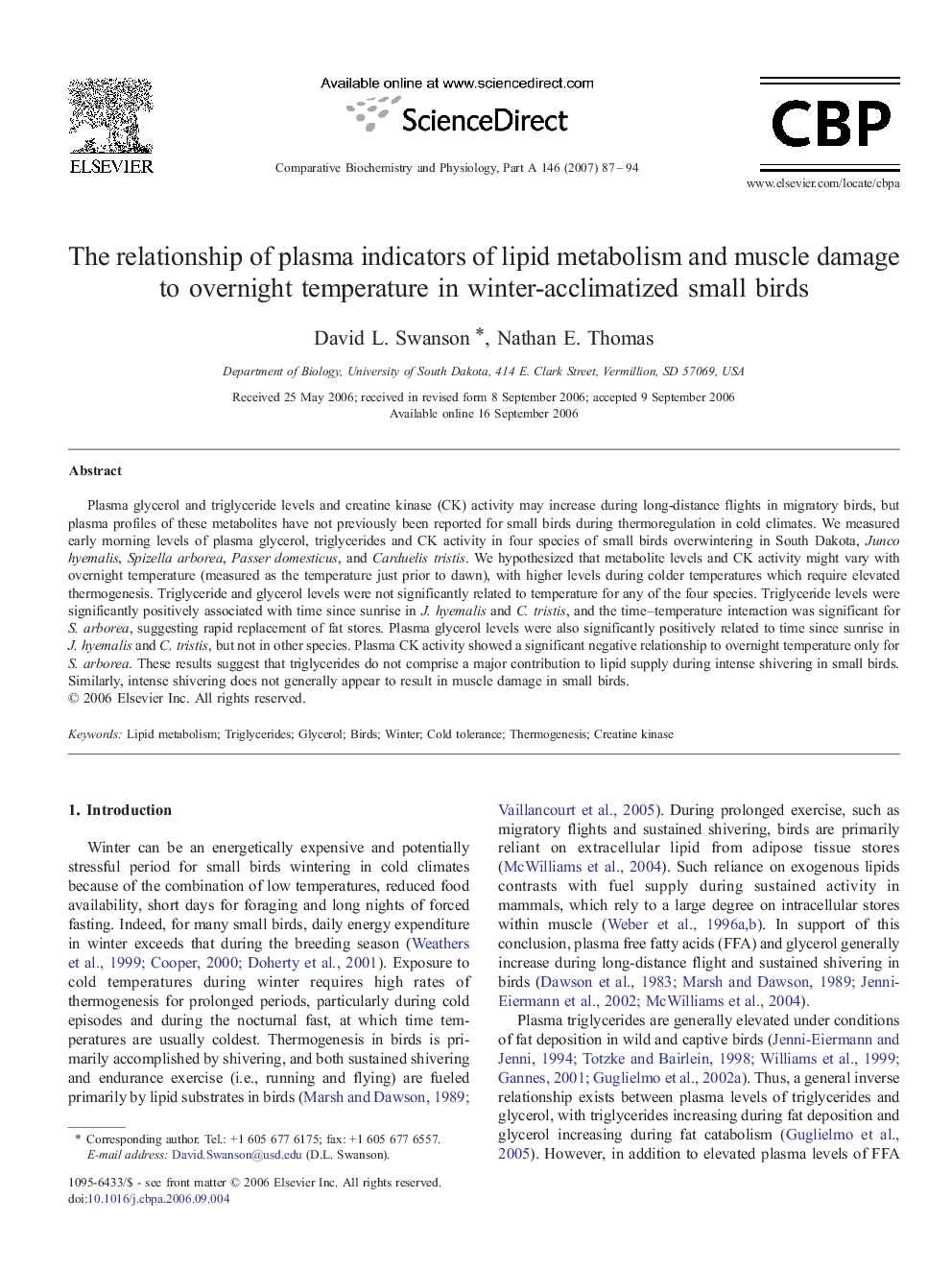| Article ID | Journal | Published Year | Pages | File Type |
|---|---|---|---|---|
| 1974908 | Comparative Biochemistry and Physiology Part A: Molecular & Integrative Physiology | 2007 | 8 Pages |
Plasma glycerol and triglyceride levels and creatine kinase (CK) activity may increase during long-distance flights in migratory birds, but plasma profiles of these metabolites have not previously been reported for small birds during thermoregulation in cold climates. We measured early morning levels of plasma glycerol, triglycerides and CK activity in four species of small birds overwintering in South Dakota, Junco hyemalis, Spizella arborea, Passer domesticus, and Carduelis tristis. We hypothesized that metabolite levels and CK activity might vary with overnight temperature (measured as the temperature just prior to dawn), with higher levels during colder temperatures which require elevated thermogenesis. Triglyceride and glycerol levels were not significantly related to temperature for any of the four species. Triglyceride levels were significantly positively associated with time since sunrise in J. hyemalis and C. tristis, and the time–temperature interaction was significant for S. arborea, suggesting rapid replacement of fat stores. Plasma glycerol levels were also significantly positively related to time since sunrise in J. hyemalis and C. tristis, but not in other species. Plasma CK activity showed a significant negative relationship to overnight temperature only for S. arborea. These results suggest that triglycerides do not comprise a major contribution to lipid supply during intense shivering in small birds. Similarly, intense shivering does not generally appear to result in muscle damage in small birds.
